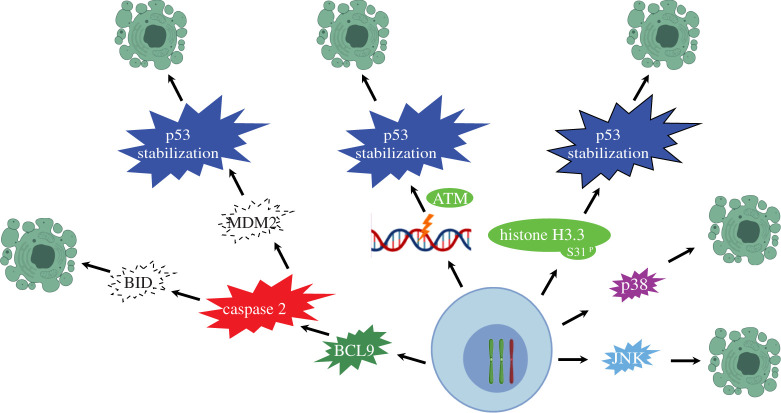Figure 1.
Mechanisms of CIN-imposed cell death. CIN and aneuploidy can trigger apoptosis and therefore, blocking apoptosis serves as an important aneuploidy-tolerating mechanism. Aneuploid cancer cells alter various pathways to overcome CIN-imposed apoptosis, summarized here. Aneuploidy can cause DNA damage, activating DNA damage-induced ATM kinase, following p53-dependent cell cycle arrest and apoptosis. Alternatively, histone H3.3 Ser31 phosphorylation can activate p53 to provoke apoptosis and suppress the proliferation of aneuploid cells. Aneuploidy can also lead to the activation of Caspase-2 when BCL9L is present, which causes cleavage of MDM2 and BID, subsequently leading to p53-dependent and -independent apoptosis. Additionally, aneuploidy can activate p38, resulting in p53-dependent apoptosis, while p38 deficiency upregulates Hif-1α to suppress apoptosis. Finally, aneuploidy-induced ROS can induce proliferation or apoptosis through JNK signalling.

